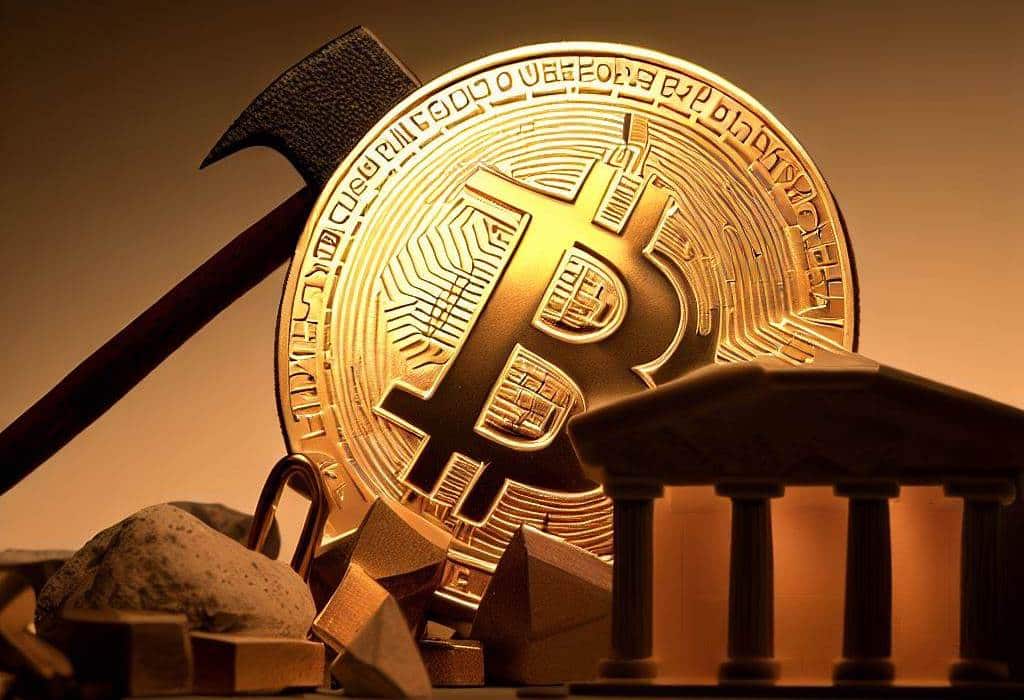
As global banks grapple with economic turmoil, gold’s value is predicted to wane. However, Bitcoin emerges as the ultimate champion, resilient in the face of adversity. Gold may be a sight to behold, but its impracticality during times of conflict is apparent.
In recent years, the banking sector has faced multiple challenges, from low-interest rates and shrinking profit margins to increasingly strict regulations. Coupled with the ongoing threat of global economic instability, these issues have left banks struggling to maintain their relevance in the rapidly evolving financial landscape.
Traditionally, gold has been considered a reliable store of value and a safe-haven asset during times of financial turmoil. However, the precious metal has its limitations. Gold is cumbersome to transport and store, making it an impractical option in situations of conflict or crisis. Additionally, gold’s value has fluctuated considerably in recent years, casting doubt on its long-term viability as a stable investment.
Enter Bitcoin, the decentralized digital currency that has proven itself as a viable alternative to traditional assets. As banks falter and gold loses its luster, Bitcoin’s resilience and adaptability have made it an attractive option for investors seeking a secure store of value. Its digital nature allows for ease of transfer and storage, making it far more practical during times of upheaval.
Furthermore, Bitcoin’s deflationary design and capped supply help protect it from the ravages of inflation. While gold and other traditional assets may struggle to maintain their value in the face of rising inflation, Bitcoin has demonstrated an ability to stand tall amidst economic uncertainty.
The growing adoption of Bitcoin and other cryptocurrencies by major institutions, payment processors, and retailers has further solidified its status as a mainstream asset. This mainstream acceptance has not only boosted the credibility of digital currencies but has also driven their value upward. In the face of mounting challenges faced by banks and traditional assets, the future of Bitcoin appears brighter than ever.
However, it’s important to note that the crypto market is still subject to volatility, and investors should exercise caution when considering digital currencies as part of their investment portfolios. As governments and regulators continue to grapple with the rise of cryptocurrencies, the potential for additional regulations should not be discounted.
In conclusion, as banks struggle to adapt and gold faces an uncertain future, Bitcoin stands as a beacon of resilience and adaptability in the financial world. Its decentralized nature, ease of transfer, and resistance to inflation make it an attractive option for investors seeking a reliable store of value, even during times of crisis.

Get the latest Crypto & Blockchain News in your inbox.